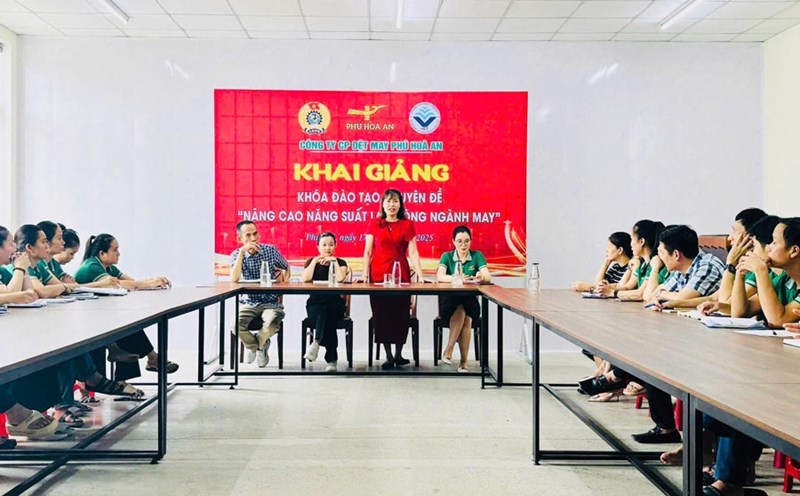The draft should add the concept of "Skilled"
Analyzing the content of the comments on the Draft, Dr. Nguyen Ngoc An - Member of the Presidium of the Vietnam General Confederation of Labor, Chairman of the Vietnam Education Trade Union affirmed that the research, study and effective implementation of the policy of developing a learning society in the spirit of the Draft documents of the 14th Congress is of special importance in the current period. However, according to Dr. An, the draft should add the concept of "Skilled" in the content of "self-improvement of knowledge, improving the qualifications of all people, all ages". Because in the new era, education in general and lifelong learning in particular always aim to train learners' skills. Knowledge and qualifications formed from skills are a new approach.
From practice, Dr. Nguyen Ngoc An said that many workers want to take extra classes to promote or change jobs, but they face barriers in time (working overtime, taking less rest), costs, learning conditions (residential areas, travel routes), and even primary education levels. Part of the training organized by enterprises focuses on short-term vocational skills. Long-term training, higher education or soft skills are still limited in access.
Digital transformation in education and the application of online learning models has opened up great opportunities but at the same time created a "digital gap". They are young workers with better access technology skills than middle-aged workers and female workers in remote areas.
In addition, the skills needs of the labor market are changing rapidly (automation, digitalization) causing training programs to sometimes not catch up, leading to skills gaps that need to be filled with retraining and skills upgrading.
There needs to be a specific policy of priority and support for workers in their studies
According to Dr. Nguyen Ngoc An, the State needs to concretize the policies in the Draft documents of the 14th National Party Congress and projects such as "Building a learning society for the period 2021-2030", "Promoting lifelong learning among workers and laborers by 2030" into clear regulations and implementation instructions with high feasibility. It is necessary to prioritize the allocation of financial resources, support businesses and workers to participate in training programs, and encourage businesses to deduct training costs from taxes to create investment incentives for vocational education.
One of the solutions Dr. An proposes is to have a policy of priority and specific support for workers in their studies and skills development. The State should expand vocational training support funds and human resource development funds; at the same time, issue a mechanism to encourage businesses to invest in training in the form of tax exemption, reduction or financial support. Scholarship policies, preferential credit policies, or support for study costs for workers to study extra classes also need to be widely implemented, especially in industrial parks and export processing zones.
This coordination mechanism helps ensure learning is linked to production needs, avoiding waste of resources and improving training efficiency. Finally, the application of digital technology in management, supervision, and recognition of informal and informal learning outcomes also needs to be institutionalized, contributing to building a flexible and open learning environment to meet the lifelong learning needs of workers in the digital transformation period.
Dr. Nguyen Ngoc An emphasized that the model of "business - vocational school - Trade Union" needs to be replicated so that workers can study and work while continuously updated with new skills. Thereby, it not only helps workers to study right at the workplace but also ensures the updatedity of the program, meeting the skills requirements of the labor market.
Trade unions need to become a bridge between workers and training facilities, encouraging the spirit of lifelong learning through the movements "Workers learn, be creative", "New knowledge every day".
Cultural centers, labor culture houses, digital libraries in industrial parks need to be invested and exploited effectively, creating conditions for workers to have space to learn, exchange and develop skills.











